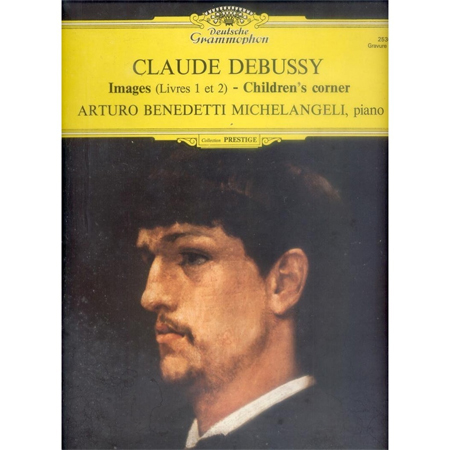1.

Claude Debussy – Children’s Corner
This was something I learned to play right towards the end of when I was learning piano, before I left home; my dad taught me. So it’s really in the list because of the score, the notes, [it could be] anyone’s performance of it – apart from a dodgy Russian guy I heard playing it too fast on YouTube, not that one [laughs]. This is the oldest on the list, but also the one I discovered first. Although I enjoyed playing it, a massive proportion of what I played in the course of learning piano as a teenager I didn’t really think much about. The music’s so full of signifiers, and Bach [for example] is so open about presenting how clever it is, it’s sort of showy. On the violin I’d played quite a lot of twelve-tone serialist things, and sort of felt the same about that, that it was showy in signifiers and didn’t really connect with me in any way.
Debussy was incomprehensible in a way, nothing before had felt like it [for me]; the way he put close clusters of notes together in little clouds, and quite dissonant things that sounded so beautiful. And at the same time as being incomprehensible it affected me, I thought it was amazing just listening to it – it was something I really wanted to be able to play well, not that I ever managed that. Looking back, both those things have stuck with me: trying to make music that you can’t understand when you listen to it, that you couldn’t work out the score to, that you can’t quite see why it’s working or why it’s beautiful, or there’s too many things coming together at once that you can’t… It’s just a magnificent work. The first piece in it, ‘Doctor Gradus Ad Parnassum’, the descending section, when it reaches its climax at the end, just dancing down a hill through chords, it’s so amazing, the momentum of it. It’s hypnotic as well. Basically everything in music that I try and do is in this collection of pieces.
It’s also quite pure. What I was saying before about Bach or even serial stuff, it’s full of signifiers and it’s saying something, it’s so full of class meaning, even the kind of people that listen to it now. It’s laden with that stuff, which is really off-putting. Whereas Debussy seems quite clean, in a way that Steve Reich or Terry Riley get to. It doesn’t sound like it’s made of signifiers and cultural stuff, it’s just notes and tone and texture. It’s only very slightly abstracted relative to Bach or Beethoven or whatever – it’s still songs, it’s still very obviously music – but it’s not overburdened with trying to say what it is. It’s just elegance.


